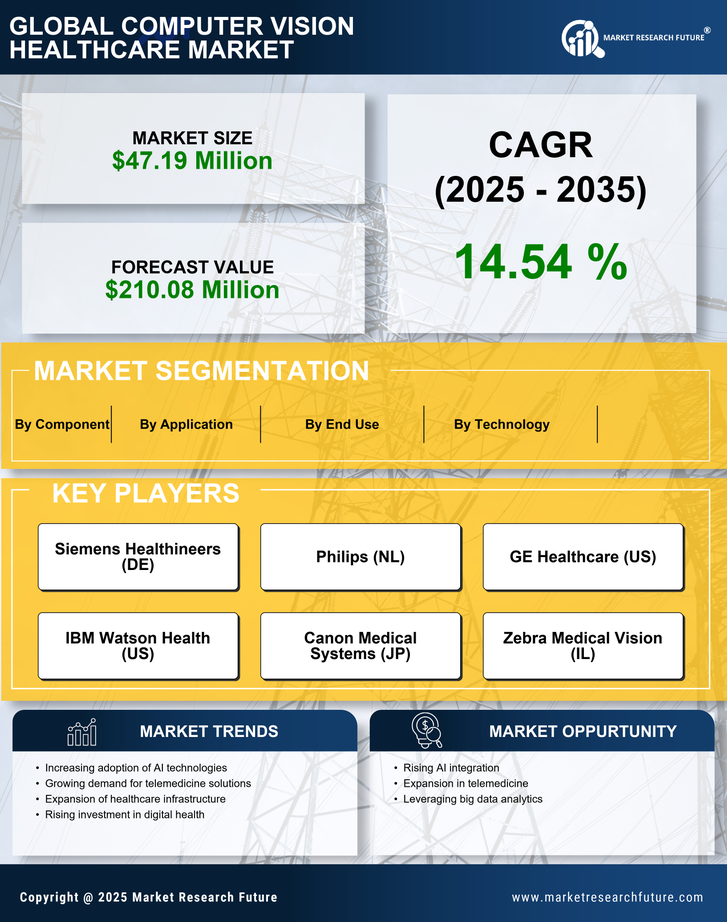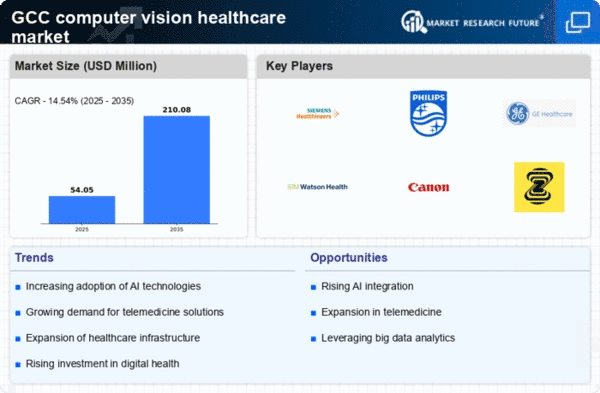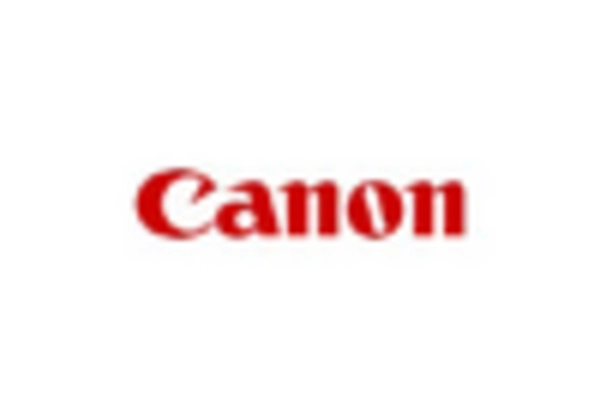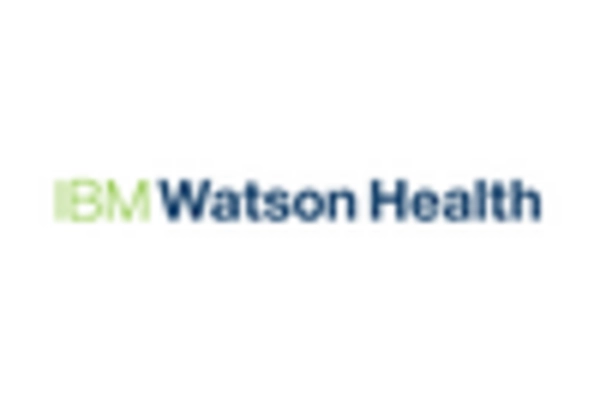Advancements in Regulatory Frameworks
The regulatory landscape surrounding the computer vision-healthcare market is evolving, with authorities in the GCC region actively working to create supportive frameworks for digital health innovations. Recent initiatives aim to streamline the approval processes for new technologies, thereby encouraging the adoption of computer vision solutions in clinical settings. As regulations become more favorable, healthcare providers are likely to invest in advanced technologies that enhance diagnostic capabilities. The market is expected to grow as a result of these regulatory advancements, with an anticipated increase of 20% in the adoption of computer vision technologies by 2030. This supportive environment not only fosters innovation but also ensures that new solutions meet safety and efficacy standards, ultimately benefiting patients and healthcare systems alike.
Increased Focus on Patient-Centric Care
The computer vision-healthcare market is witnessing a shift towards patient-centric care, driven by the growing emphasis on personalized medicine. Healthcare providers in the GCC are increasingly leveraging computer vision technologies to tailor treatments to individual patient needs. This approach not only enhances patient satisfaction but also improves treatment efficacy. By utilizing advanced imaging and analysis tools, healthcare professionals can gain deeper insights into patient conditions, leading to more informed decision-making. The market is projected to see a rise in the adoption of personalized treatment plans, with a projected increase of 15% in the next few years. This trend reflects a broader movement within the healthcare sector to prioritize patient outcomes, thereby positioning the computer vision-healthcare market as a key player in the evolution of modern healthcare delivery.
Growing Investment in Health Tech Startups
Investment in health tech startups focusing on computer vision applications is on the rise in the GCC region. Venture capitalists and private equity firms are increasingly recognizing the potential of innovative technologies to disrupt traditional healthcare models. In 2025, investments in health tech startups are projected to reach approximately $1 billion, with a significant portion directed towards computer vision solutions. This influx of capital is fostering a vibrant ecosystem for innovation, enabling startups to develop cutting-edge applications that address pressing healthcare challenges. As these startups bring novel solutions to market, the computer vision-healthcare market is likely to benefit from enhanced competition and technological advancements. The collaboration between established healthcare providers and emerging startups may lead to the development of integrated solutions that improve patient outcomes and operational efficiency.
Integration of Machine Learning Algorithms
The integration of machine learning algorithms into the computer vision-healthcare market is transforming diagnostic processes. These algorithms enable healthcare professionals to analyze vast amounts of medical data with unprecedented accuracy and speed. In the GCC, the adoption of machine learning is expected to increase by over 25% in the next five years, as healthcare institutions recognize the potential for improved diagnostic precision. By automating image analysis and identifying patterns that may be missed by human eyes, machine learning enhances the efficiency of radiology and pathology departments. This technological advancement not only reduces the workload on healthcare professionals but also contributes to faster decision-making, ultimately benefiting patient care. The ongoing development of sophisticated algorithms is likely to further propel the computer vision-healthcare market, as stakeholders seek innovative solutions to enhance diagnostic capabilities.
Rising Demand for Enhanced Imaging Solutions
The computer vision-healthcare market is experiencing a notable surge in demand for advanced imaging solutions. This trend is driven by the increasing prevalence of chronic diseases and the need for accurate diagnostics. In the GCC region, healthcare providers are increasingly adopting computer vision technologies to enhance imaging capabilities, which can lead to improved patient outcomes. The market for medical imaging is projected to grow at a CAGR of approximately 8% from 2025 to 2030, indicating a robust expansion. Enhanced imaging solutions not only facilitate early disease detection but also streamline treatment planning, thereby optimizing healthcare delivery. As hospitals and clinics invest in state-of-the-art imaging technologies, the computer vision-healthcare market is poised for significant growth, reflecting the critical role of imaging in modern healthcare.

















